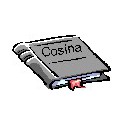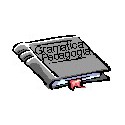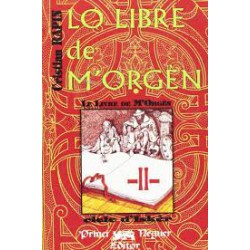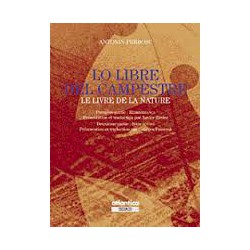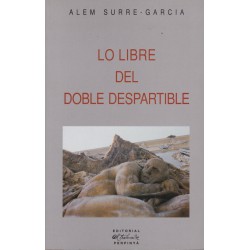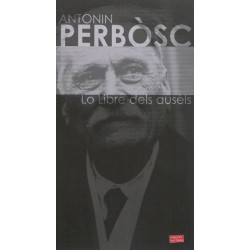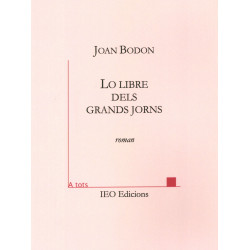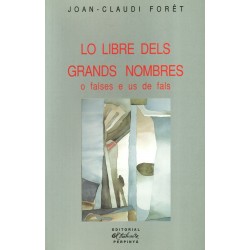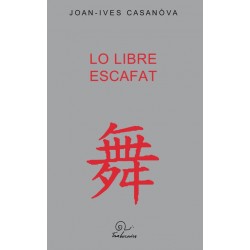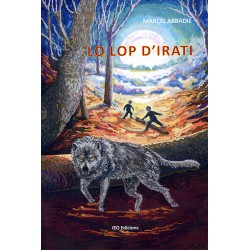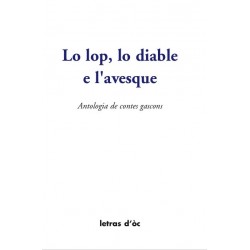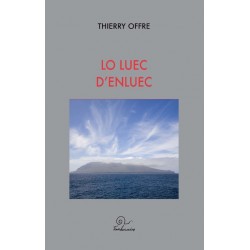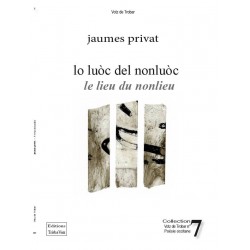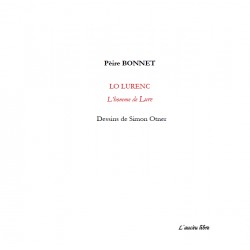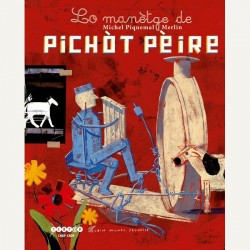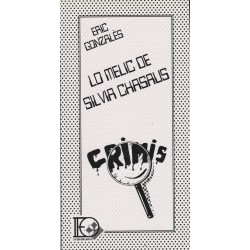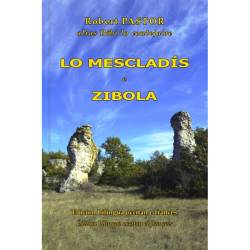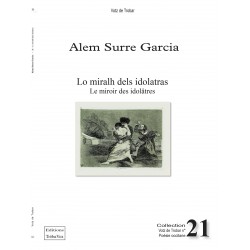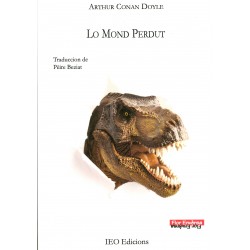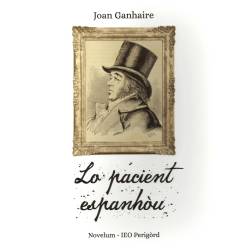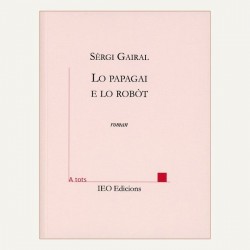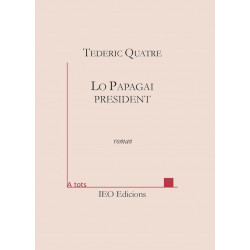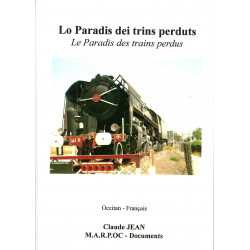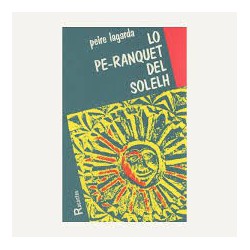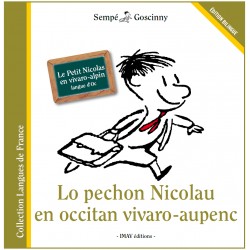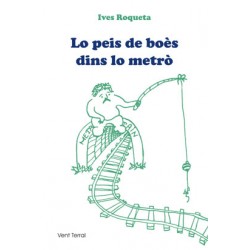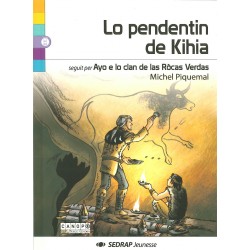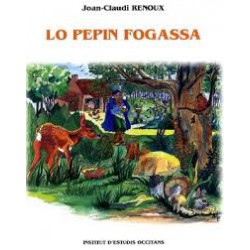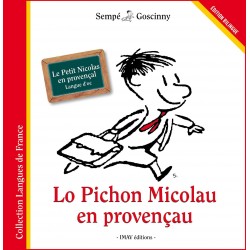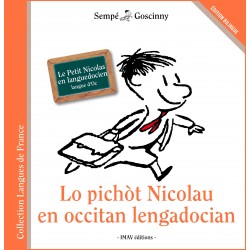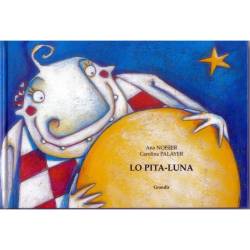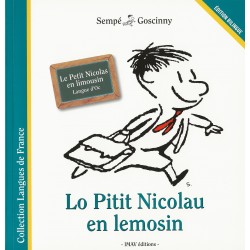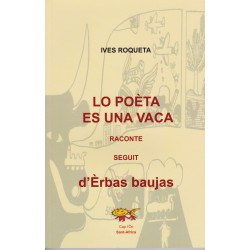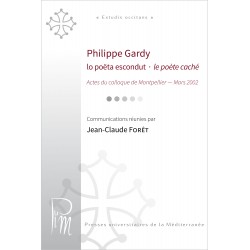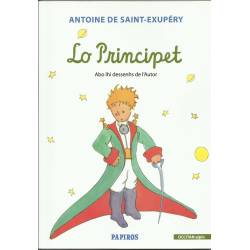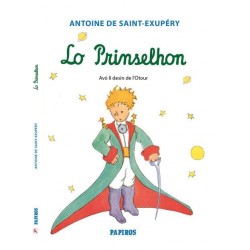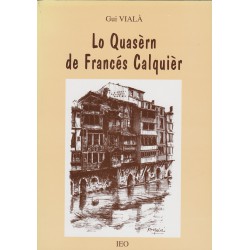Recently added item(s)
No products
Product successfully added to your shopping cart
There are 0 items in your cart. There is 1 item in your cart.
Books
- New Selection
- Books
- Music
- Videos - DVD
- Miscellaneous
- Revues, Journaux
Catalog
Links

Books
Occitan Books or on the Occitania country
Subcategories
BD - Humour
Livres BD - Humour en occitanBeaux Livres
Beaux Livres en occitanContes
Livres de Contes en occitanCuisine
Livres de Cuisine en occitan
Diccionari
Livres Diccionari en occitanEnfants
Livres Enfants en occitanGrammaire - Pédagorie
Livres Grammaire - Pédagorie en occitanHistoire - Etudes
Livres Histoire - Etudes en occitanLinguistique - Toponymie
Livres Linguistique - Toponymie en occitanLiterature
Books Literature in occitanMusique
Livres Musique en occitanMistral and friends
Nature
Livres Nature en occitanPatrimoine
Livres Patrimoine en occitanPoetry
Poetry books in occitanPractical
Practical books in OccitanTheater
Theater books in occitan language
Troubadours
Books about troubadours, men and women, whether Occitan or not.
A troubadour (trobador) was a composer and performer of Old Occitan lyric poetry during the High Middle Ages (1100–1350). Since the word troubadour is etymologically masculine, a female troubadour is usually called a trobairitz.
The troubadour school or tradition began in the late 11th century in Occitania, but it subsequently spread into Italy and Spain. Under the influence of the troubadours, related movements sprang up throughout Europe: the Minnesang in Germany, trovadorismo in Galicia and Portugal, and that of the trouvères in northern France. Dante Alighieri in his De vulgari eloquentia defined the troubadour lyric as fictio rethorica musicaque poita: rhetorical, musical, and poetical fiction. After the "classical" period around the turn of the 13th century and a mid-century resurgence, the art of the troubadours declined in the 14th century and eventually died out around the time of the Black Death (1348).
The texts of troubadour songs deal mainly with themes of chivalry and courtly love. Most were metaphysical, intellectual, and formulaic. Many were humorous or vulgar satires. Works can be grouped into three styles: the trobar leu (light), trobar ric (rich), and trobar clus (closed). Likewise there were many genres, the most popular being the canso, but sirventes and tensos were especially popular in the post-classical period, in Italy and among the female troubadours, the trobairitz.Editions
Digital books
Lo libre de M'orgen - Tome II - Cristian...
Lo libre de M'orgen - Tome II - Cicle d'Iskèr. Cristian Rapin. Livre bilingue en Occitan & en Français. Princi Néguer Editor.
14,95 €Lo libre de Sara - Max Roqueta
15,00 €Lo libre del campèstre – Le livre de la...
Lo libre del campèstre – Le livre de la nature - Antonin Perbosc. Atlantica. Institut Occitan.
9,91 €Lo Libre del Causse - Pau Gairaud
Lo Libre del Causse - A family saga over three generations where, from Causse Rouergue to Montpellier, it is not Only matter of work and farm to save, but also money, sex and passion. Pau Gairaud.
19,00 €Lo libre del doble despartible - Alem...
Lo libre del doble despartible (The book of the divisible double) - Alem Surre-Garcia - Editorial Perpinyà, editions Trabucaïre.
15,24 €Lo libre dels ausèls - Antonin PERBOSC
Lo libre dels ausèls - Book of Antonin PERBOSC: a ribambelle of songs, poems, tales where the bird is at the center of the universe. Collection Classics occitans n ° 1, Editions IEO.
21,00 €Lo libre dels grands jorns - Joan Bodon
Lo libre dels grands jorns - Joan Bodon. He knows he is ill and fleeing his familiar universe, he arrives by chance in Clermont-Ferrand. Why not spend a few days there, his last? One of Jean Boudou's great novels . IEO Edicions.
14,00 €Lo libre dels grands nombres o falses e us...
Lo libre dels grands nombres o falses e us de fals - Joan-Claudi Forêt. Recuelh de uèch novèlas en occitan que dins son títol s'i pòt pas pas ausir un resson del roman de Joan Bodon, es plaçat jol signe de la somiariá sus las matematicas. Editions Trabucaire.
15,00 €Lo libre escafat - Joan-Ives Casanòva
Lo libre escafat - An occitan novel by Joan-Ives Casanòva. Editions Trabucaire.
10,00 €Lo lop d’Irati - Marcel Abbadie
Lo lop d’Irati (The wolf of Irati) - A novel in Occitan Gascon (especially intended for young people) written by Marcèl Abbadie. Collection Joven’Oc, IEO edicions.
10,00 €Lo lop, lo diable e l'avesque - Antologia...
Lo lop, lo diable e l'avesque (The Wolf, the Devil and the Bishop) - Antologia de contes gascons (Anthology of Gascony tales) issus de la parole du peuple. Letras d'òc.
20,00 €Lo luec d'enluec - Thierry Offre
Thierry Offre recounts in Occitan prose, life in this "place of nowhere", "Lo luec d'enluec", paradise of birds and marine mammals - Collection animated by Joan Claudi Forest.
12,00 €Lo luòc del nonluòc, Le lieu du nonlieu -...
Lo luòc del nonluòc, Le lieu du nonlieu - Un recueil de poèmes dans lequel Jaumes Privat évoque le départ, le voyage, les inquiétudes, les incertitudes et les hésitations à partir, où que ce soit. Collection Votz de Trobar n°7, Tròba Vox.
15,00 €Lo lurenc – Pèire Bonnet
LO LURENC - Pèire Bonnet - L’homme de Lure. Dessins de Simon Otner. L'aucèu libre.
10,00 €Lo Lutrin de Ladèrn - Aquiles Mir
Lo Lutrin de Ladèrn - Aquiles Mir - A Tots 31 - Bouffonade in three small steps.
3,50 € 5,50 € -36.36%Reduced price!Lo mainatge de nèu - Mauhorat, Decamps,...
Lo mainatge de nèu (Livre + CD) Sèrgi Mauhorat, Domenja Decamps Illustrations de Mayana Itoïz Traduction (Languedocien) de Miquèl Bertomius
10,00 €Lo Mandarin - José Maria Eça de Queiroz -...
Lo Mandarin - José Maria Eça de Queiroz - Traduccion del portugués : Joaquim Blasco. A la diferéncia dels romans monumentals ja citats, o del cap d’òbra Os Maias, es un roman cortet que, ni per tot, es plan representatiu de l’òbra d’Eça de Queiroz. Flor enversa 13, IEO edicions.
12,00 €Lo melic de Silvia Chasaus - Eric Gonzalès
Lo melic de Silvia Chasaus - Eric Gonzalès. Roman policier en occitan où l'on retrouve les personnages de "L’òrra istuèra d’un hilh de Gelòs". Collection Crimis - A Tots n°136, IEO edicions.
7,50 €Lo Mescladís e Zibola - Robert Pastor ou...
Lo Mescladís e Zibola - Robert Pastor ou Bòbi lo contejaire
15,00 €Lo Minjachepics (libre + CD) - Sèrgi Mauhorat
Lo Minjachepics (libre + CD) - Sèrgi Mauhorat. Illustracions de Isabelle Morlaàs-Lurbe. Scérén crdp.
15,00 €Lo miralh dels idolatras - Le miroir des...
Lo miralh dels idolatras - Le miroir des idolâtres - Alem Surre Garcia. Collection Votz de Trobar n°21, Troba Vox.
15,00 €Lo Netejaire, las enquèstas del comissari...
Lo Netejaire, las enquèstas del comissari Casal - In this volume 3 of the investigations of Commissioner Casal, Raimond Guiraud gives us a detective novel in Toulouse and in occitan language.
15,50 €Lo pacient espanhòu - Joan Ganhaire
Lo pacient espanhòu - Joan Ganhaire. A fictional novel in Occitan, set between the first part of the 19th century in Bordeaux, at the end of the life of Francisco Goya, the great Spanish painter, and the present day. We follow the trail of his last doctor to discover why Goya's body no longer had a head? Novelum - IEO Perigòrd.
13,50 €Lo paire nové chercha una maison -...
Lo paire nové chercha una maison - Traditionnel - Contes
4,00 €Lo papagai e lo robòt - Sèrgi Gairal
Lo Papagai e lo robòt - Sèrgi Gairal. Roman en occitan, une "fable moderne" pour tous publics. Collection A Tots n°206, IEO Edicions.
15,00 €Lo Papagai president - Tederic Quatre -...
Lo Papagai president - Tederic Quatre - Roman. Lo Kevin e lo Jaufre, los dus conselhèrs « comunicacion » deu president de la Republica Manuel Cercací, qu’esperan a la pòrta deu bureu de l’Elisèu. Puish un tarabast, ua rambalhassa, un crit indeterminat, un brut eishord e en seguir… lo silenci. A tots n°232 (IEO edicions).
12,00 €Lo paradis dei trins perduts - Claude Jean
Lo paradis dei trins perduts - Claude Jean. Le paradis des trains perdus. Recueil de 17 récits autour du train, c'est un peu la version cheminote des lettres de mon moulin, avec autant de réalisme, de poésie, d’humour et de sensibilité. Bilingue Occitan - Français. M.A.R.P.OC - Documents.
20,00 €Lo pastre, lo caramèl e la sèrp (Book +...
Lo pastre, lo caramèl e la sèrp (The Shepherd, the Torch and the Snake - Book + CD) - A magical and mysterious tale by Daniel Loddo. CORDAE / LA TALVERA - I.E.O.
10,00 €Lo pavòt dins la nívola - Emily Dickinson...
Lo pavòt dins la nívola - 431 poésies d'Emily Dickinson - Traduit par Peyre Anghilante (Chambra d'òc).
14,00 €Lo Pe-ranquet del solelh - Peire Lagarda
Lo Pe-ranquet del solelh - Peire Lagarda. Racontes. IEO. Ostal del libre.
13,00 €Lo Pechon Nicolau en occitan vivaro-aupenc...
Lo Pechon Nicolau en occitan vivaro-aupenc - Le Petit Nicolas en vivaro-alpin : langue d'oc - René Goscinny et Jean-Jacques Sempé. Quatre histoires extraites de « La rentrée du Petit Nicolas », en version bilingue français et occitan vivaro-alpin, traduit par Gérard Ligozat. IMAV éditions - Collection "Langues de France".
15,00 €Lo peis de boès dins lo metrò - Ives Roqueta
Lo peis de boès dins lo metrò (Le poisson de bois dans le métro) - Nouvelle d'Yves Rouquette. Vent Terral.
5,00 €Lo pendentin de Kihia - Michel Piquemal
Lo pendentin de Kihia suivi de Ayo e lo clan de las Ròcas verdas - Michel Piquemal - illustrations de Priscille Mahieu - traduction en occitan languedocien de Jean-Frédéric Brun.
6,30 €Lo pepin Fogassa - Joan-Claudi Renoux
Lo pepin Fogassa - Joan-Claudi Renoux. Dessenhs : Auròra Basso. Farfadet. I.E.O-editor.
4,60 €Lo petiot Nicolau per auvernhàs & velagués...
Lo petiot Nicolau per auvernhàs & velagués - Le Petit Nicolas en auvergnat : langue d'oc - René Goscinny et Jean-Jacques Sempé. IMAV éditions - Collection "Langues de France".
15,00 €Lo Petit Nicolau en gascon - Le Petit...
Lo Petit Nicolau en gascon - Le Petit Nicolas en gascon : langue d'oc - René Goscinny et Jean-Jacques Sempé. IMAV éditions - Collection "Langues de France".
15,00 €Lo Pichon Micolau en provençau - Le Petit...
Lo Pichon Micolau en provençau - Le Petit Nicolas en provençal : langue d'oc - René Goscinny et Jean-Jacques Sempé. Six histoires extraites de « La rentrée du Petit Nicolas », en version bilingue français et occitan provençal, traduit par Michel Alessio. Es chanut ! IMAV éditions - Collection "Langues de France".
15,00 €Lo pichòt Nicolau en occitan lengadocian -...
Lo pichòt Nicolau en occitan lengadocian - Le Petit Nicolas en languedocien : langue d'oc - René Goscinny et Jean-Jacques Sempé. IMAV éditions - Collection "Langues de France".
15,00 €Lo pita-luna - Ana Noisier / Carolina Palayer
Lo pita-luna - Ana Noisier, Carolina Palayer. Pourquoi le ciel est-il si noir ce soir ? Quel est ce monstre qui a grignoté la lune ? Et au fil des pages, les enfants comprennent les phases de la lune. On passe du conte à la géographie. Traduction Jerome Guirand. Graphie classique. Éditions Grandir.
8,00 €Lo Pitit Nicolau en lemosin - Le Petit...
Lo Pitit Nicolau en lemosin - Le Petit Nicolas en limousin : langue d'oc - René Goscinny et Jean-Jacques Sempé. IMAV éditions - Collection "Langues de France".
15,00 €Lo poèma dáu Ròse - Frédéric Mistral
Lo poèma dáu Ròse - Frederic Mistrau - Frédéric Mistral en graphie classique occitane. Ce poème en douze chants relate la difficile survie des bateliers fluviaux au XIXe siècle, à l'heure où le chemin de fer fait son apparition. Éditions des Régionalismes.
12,50 €Lo Poèta es una vaca, raconte – seguit...
Lo Poèta es una vaca, raconte – seguit d'Èrbas baujas - Ives Roqueta. Cap l'Òc. Sant-Africa.
10,00 €Lo poëta escondut / le poète caché -...
Lo poëta escondut / le poète caché - Philippe Gardy. Cas singulier que celui de Gardy dans la littérature occitane. Actes du colloque de Montpellier — Mars 2002. Communications réunies par Jean-Claude Forêt. Presses universitaires de la Méditerranée (PULM).
10,00 €Lo Princilhon - Antoine de Saint-Exupéry...
Lo Princilhon (Le Petit Prince) - Antoine de Saint-Exupéry. The famous poetic tale translated in Occitan (Languedoc) by Jordi Blanc. With watercolors painting by the author. Vent Terral.
15,00 €Lo Principet - Antoine de Saint-Exupéry (...
Lo Principet - Antoine de Saint-Exupéry. La version en occitan alpin de “Le Petit Prince”, par Gianna Bianco et la Chambra d'Oc. Papiros.
10,00 €Lo Prinçòt - Antoine de Saint-Exupéry...
Lo Prinçòt - Antoine de Saint-Exupéry - Occitan Gascon version translate by Eric Chaplain. Editions des Régionalismes.
23,50 €Lo Prinselhon - Antoine de Saint-Exupéry -...
Lo Prinselhon - Antoine de Saint-Exupéry. La version en arpitan (francoprovençal) de “Le Petit Prince”, par Matteo Ghiotto, Matteo Rivoira et la Chambra d'Oc. Papiros.
10,00 €Lo Quasèrn de Francés Calquièr - Gui Vialà
Lo Quasèrn de Francés Calquièr - Gui Vialà. Dessin de couverture "Castres, les vieilles maisons sur l'Agout", gravure de P. Noslier. I.E.O. de Tarn.
16,77 €
 English
English Français
Français Occitan
Occitan






